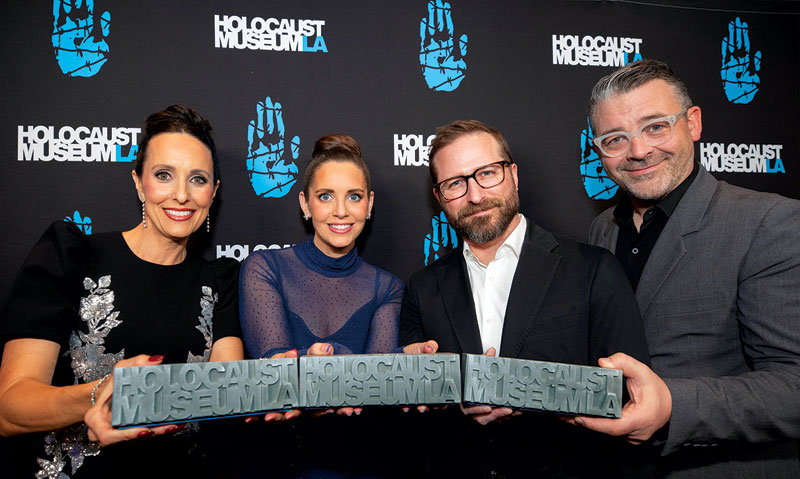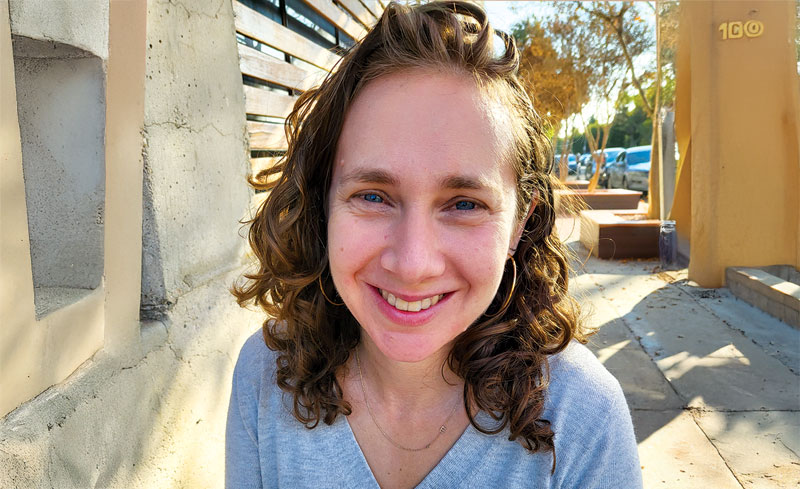When people query me as to who our clients are, if the person is Jewish, I often answer, “Half our clients are Jewish organizations. And the other half are people who treat us really nicely.”
Almost always people laugh at the response. Once, however, at a Jewish event in San Francisco, someone told me I was anti-Semitic. My answer to her? “Being realistic about our organizational issues doesn’t make me an anti-Semite.”
Jewish organizations have many issues. But after having worked with more than 100 of them, in the United States, Israel and around the world, I have come to the conclusion that among the top priority issues is how we interact with one another. In the process of pursuing tikun olam (repairing the world), I have seen more Jewish organizations destroy the Jewish spirit of the individuals involved. While they are busy saving the people “out there” they are chopping up the ones close to them.
This is no secret. Any of us who has been involved in organized Jewish life has witnessed this reality, if not personally been subjected to it. Yet, it is like the elephant in the living room that sits heavily in the midst of everything, and everyone wants to tiptoe around it, ignoring its presence. No one wants to publicly speak of the obvious.
I do.
And it is time the rest of us do, too. We must put the issue of inter-personal relations within organized Jewish life on the public agenda. I realized this on Yom Kippur. At one point in the service, our astute young rabbi opened up a public discussion from the bimah about business ethics in view of Enron, Tyco and Global Crossing. After a few minutes of discussion, I raised my hand and said, “We have an issue of business ethics in the Jewish organizational business — the ethics of how we treat one another.” For the rest of the day, people, many of them prominent in the community, continued to approach me, commenting on how correct I was, or asking me to explain further what I believed the issues were. I realized there is a great collective need in our community to explore this matter.
With all the exposure I have had to this issue and all the trans-continental and international airline seats I have occupied after meeting with my clients, I have given this a great deal of thought and weary reflection.
Where does it begin? At the core of Jewish organizational structure is a very particular professional-lay relationship. Notice I have turned its common parlance around and have not called it the “lay-professional relationship.” Describing it as the lay-professional relationship basically states the problem.
In Jewish institutions, as opposed to my non-Jewish clients, the lay people have a lot more hands-on day-to-day involvement with the organization. In many cases this is extraordinary and bespeaks a very heartfelt level of commitment. We would not be the community we are today without this level of lay involvement. Yet, it is not without its problems. And we cannot be afraid or intimidated to approach those problems.
Lay-professional means the lay people are primary. Primary over those who devote their studies, professions and career goals to Jewish life. It says that who gives the money or sits on a committee is more important than who builds a lifetime of service, giving 18 professional hours a day, weekends and holidays (yes, even Jewish ones) servicing what that money actually does.
People will say I am splitting hairs, that it is an equal relationship. But in most cases, we know this is simply not true. The question this begs is: Who really holds control?
When we work with a Jewish organization, there are four words that we most often hear from the professionals throughout the working relationship, as we approach the decision-making process. “But the lay people….” It is a constant mantra. The professionals shake with fear and uncertainty when they say these words. I have come to realize that these four words stifle their creativity, their leadership, their thinking, their self-confidence and their professionalism. I cannot count how many meetings I have sat in where the professionals, who possess the most knowledge, sit silently while their lay counterparts “run” the meeting. This fear and absence of control by the professionals inhibits the Jewish enterprise from being all it can be. There must be important decisions which professionals are allowed to guide, and in some cases are left alone to make.
This issue rarely arises in non-Jewish organizations.
These thoughts are in no way to discount the importance of lay people in Jewish organizational life. It is a partnership. Lay people fund the existence of this enterprise. Good lay people understand the issues, are committed, knowledgeable and integral to the vision, flourishing and survival of the enterprise. However, like in any partnership, roles must be clearly defined. If one partner is shorn of his or her decision-making responsibilities, particularly when he or she understands the issue or situation at hand better than anyone in the room, the partnership is not healthy.
In a changing world, where the Jewish enterprise is threatened on many levels, it is time that the partnership be examined, restructured and publicly addressed. There needs to be respect for the professional’s professionalism, insight, knowledge and vision. The schools training the professionals must meet the challenge of professionals trained to actually lead, not just follow and serve.
From this partnership flows the nature and culture of Jewish organizations. If we begin tikun olam at this level, then we can begin to repair what else needs to be fixed.
Torah values of how we treat one another must be integrated into this restructuring process. There needs to be a code of conduct. Professionals need to be trained in this code as to how to treat fellow professionals, employees and lay counterparts. Lay people need to be trained in this code as to how to treat the professionals as well as each other, including those lay people who are not major funders. In some cases, we actually need to civilize and Judaize our organizational behavior.
We need to call for a conference to address the issue.
Papers must be published in both professional and general Jewish publications which begin to create a new organizational culture. We must open the discussion for robust and healthy debate. Respectfully.
We must create manuals and codes. We have to establish training sessions. How we treat one another is as important as how we save one another.
I am certain someone will ask why, if I find this relationship so distasteful, do I continue to pursue Jewish organizations as clients? I am them. And they are me. I am bound at the hip to the Jewish enterprise. From our perch as marketers, delving deeply into their souls and operations I see Jewish organizations as nothing short of extraordinary, paving the path for daily miracles. I am proud of these organizations and to be playing such an integral role.
I just want to see us be all we can be.
Gary Wexler is an advertising executive and consultant to Jewish agencies.























 More news and opinions than at a Shabbat dinner, right in your inbox.
More news and opinions than at a Shabbat dinner, right in your inbox.